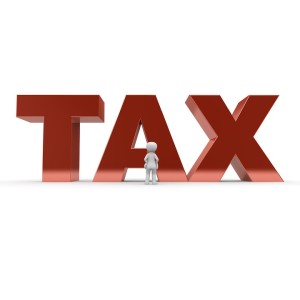
Touted as one of the unparalleled tax reforms of our economic history, the Goods and Services Tax (GST) has subsumed a number of indirect taxes, impacting the billing experience of every aam aadmi in the country. Restaurant bills that were earlier riddled with VAT, Service Tax, Krishi Kalyan Cess and Swachh Bharat Cess are now simply required to levy the GST.
In the GST regime, restaurants are broadly divided into AC and non-AC, levying GST accordingly. The tax on dining is at a fixed rate of 18 per cent for AC restaurants and 12 per cent for non-AC.
But is the GST levied on restaurants really so black and white?
One Nation, One Tax – In Two Parts
To know whether you are charging, or being charged, the correct GST on your restaurant bill, you must know what the GST comprises of.
Ironically, our ‘One Nation, One Tax’ actually comprises two parts – Central GST and State GST. What’s more, if you happen to be enjoying a meal at a restaurant in Puducherry, you’ll be charged a UTGST – Union Territory GST. Whether you come under the 12 per cent bracket or the 18 per cent, you will be paying an equal share of tax to the State or Union Territory you are in, as well as to the Central Government.
Integrated Goods and Services Tax (IGST) introduces yet another dimension to this tax. At a flat rate of 18 per cent, IGST is the tax collected by the Centre on inter-state supply of goods and services, and is also applicable on imports. As GST is a consumption based tax, IGST is intended to ensure a smooth passage for input tax from state to state. Each state must deal with the Central Government to settle tax amounts instead of other states, making the entire process easier.
AC, non-AC and Everything in Between
Restaurants under the GST Regime are loosely divided between AC and non-AC. Seems simple enough, barring one subtle misinterpretation. AC restaurants must charge a flat GST of 18 per cent on all sections of the eatery, that is AC, non-AC, delivery and takeaway. Currently, however, many restaurants are charging 18 percent for the AC sections and 12 per cent for their non-AC sections, home delivery and takeaway. As it happens, only restaurants who do not have an AC section and who do not serve alcohol are allowed to levy a GST of 12 per cent. 12 per cent is also applicable to pre-cooked and pre-packaged namkeens bought at any restaurant, whether AC or non-AC. Earlier the GST applied on restaurants in five-star and luxury hotels was 28 percent but lately it has been reduced to 18 percent, bringing it par with the standalone air-conditioned restaurants.
Nonetheless, due to a lack of awareness, many partially air-conditioned restaurants are levying two separate amounts in taxes – 12 per cent for their non-AC sections and 18 per cent for the AC sections. Such discrepancies would mean a fair bit of problems for restaurant owners while filing income tax returns. Not only would they unknowingly be in breach of the law, they would be required to pay the balance 6 per cent of their GST and any penalties from their own pockets.
A Short Note on VAT and Service Charge
Although the serving of alcohol determines the amount of GST levied at a particular restaurant, liquor finds itself outside the purview of the Goods and Services Tax. Value Added Tax (VAT) is still applicable on liquor, however, only on the liquor portion of the bill. The GST is only applicable to the food portion, and the VAT and GST can never be levied on each other.
Service charge is still levied on restaurant bills in the era of the GST as it is not a tax, rather an income for the restaurant as a gratuity paid by the customer. However, what what many diners and restaurant owners don’t know is that diners can refuse to pay this component of the bill as well, if they choose.
In Conclusion
The GST seems to be a constructive shift in India’s tax reforms, however, would be a success only if citizens understand it completely. Hopefully, the GST for Restaurants will bring ease rather than complications to restaurant-owners and consumers alike. In a situation like this, knowledge is truly wealth.

